US Open: 'Dustin Johnson farce should never happen again'
- Published
- comments
Dustin Johnson says winning US Open feels 'awesome'
One of the great major championship performances was ludicrously overshadowed by a rules controversy that ultimately reduced the margin of Dustin Johnson's US Open victory from four shots to three.
The farce that played out on a warm Pennsylvania afternoon should serve as a prompt to rip up existing protocols and ensure future championships are never again faced with a similar situation.
While we should be marvelling at the new champion's brilliant approach to the home green at Oakmont, we are instead picking apart the events that followed an incident on the fifth green.
This is where Johnson was adjudged to have caused his ball to move prior to holing out for a par. The debate rages over whether he was responsible for something that earned him a one-stroke penalty.
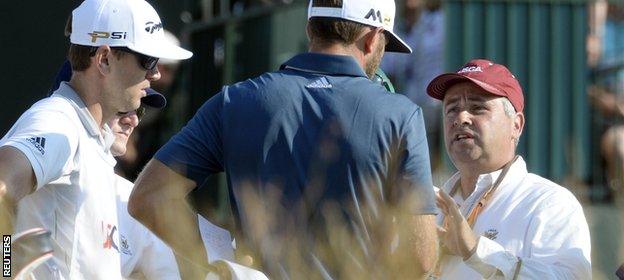
A course official (right) speaks to Dustin Johnson (centre) at the fifth hole at Oakmont to discuss a possible infringement
But the greater concern should be how the situation was handled by the United States Golf Association. It might have correctly followed its procedures but they leave golf open to ridicule.
In a championship viewed by millions across the world, it is nonsense that it should be played out with those competing and watching unsure of the leaderboard situation.
What other sport continues when you don't know the score?
Yet Jeff Hall, the USGA managing director of rules and competitions, claimed: "We feel pretty comfortable with the process that we had to resolve this one."
When the incident occurred, Johnson's playing partner, Lee Westwood, witnessed the minute movement of his opponent's ball. He informed the walking rules official as Johnson stood back from his putt.
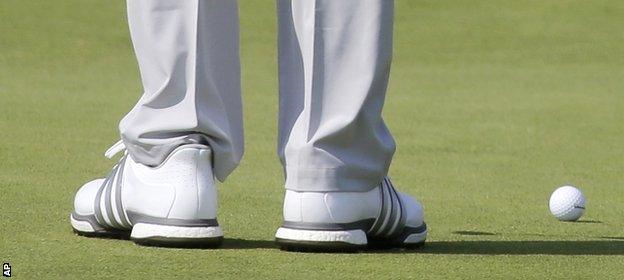
Johnson, stood here on the fifth hole, was eventually penalised after his ball moved when he addressed it
Westwood was sure there was no rules infringement. Johnson was asked whether he had caused the ball to move and said that he had not.
The referee told him to play the ball as it lies. That should have been the end of it.
Golf is a game where player integrity is paramount and their responsibility is to protect the rest of the field from rules breaches. Shane Lowry, who finished joint second, had called a penalty on himself in the second round when he caused his ball to move on the super-slick greens.
That's the culture of the game and it is one that sets golf apart from most sports and in a very positive way.
However, what followed showed golf in a dreadful light.
It took officials seven holes to inform Johnson that they thought there might be a problem and that they wanted to discuss the incident in the recorder's hut at the end of the round.
Rivals on the leaderboard were also informed of the situation, which meant no one knew where they stood. This uncertainty was far more damaging that the minuscule movement of Johnson's ball.
Although the eventual champion diplomatically said that it did not affect his play, it certainly seemed to have a detrimental impact for several holes.
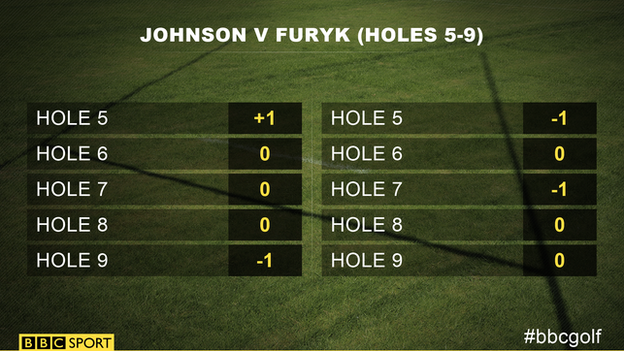
Johnson averaged par over five holes from the fifth onwards, while second-placed Jim Furyk made up two shots on the leader
More significantly, those of us watching - the audience for what is ultimately an entity of entertainment - were left unsure. We were, though, fully aware that the raw competition was being undermined.
Video evidence suggested Johnson's grounding of his putter to the side of his ball, prior to addressing it, had caused the movement. On the balance of probabilities he would be judged guilty of breaking rule 18-2., external
In other professional sports a television match official (TMO) would have the opportunity to reverse a decision and impose a penalty with the minimum of fuss. Why can that not happen in golf?
After all, when the conversation eventually took place, Johnson continued to deny it was his fault but the committee still hit him with a one-stroke penalty.
The biggest crime here is that they should have done it as soon as possible so that everyone would know where the competition stood.
"We wanted to make sure that Dustin had the benefit of a conversation, and we wanted to make sure we got it right," said head referee Thomas Pagel.
Sometimes decisions are not correct, but that is the nature of sport and one has to live with it.
Certainly the Twitter outcry, led by 2015 winner Jordan Spieth, suggests many players feel the USGA were wrong to penalise the man who succeeded him as champion.
However, the more pertinent social media intervention came from world number three Rory McIlroy, who said: "This isn't right for anyone on that golf course. If it was me I wouldn't hit another shot until this farce was rectified."

Rory McIlroy was among several golfers who expressed their disappointment on Twitter
It has been said often already, but this is another instance where golf needs to get up with the times. These protocols, where the score is decided in a hut behind the 18th green, are not in keeping with modern professional sport.
Each group at the US Open has a walking referee. They should be empowered to make decisions and keep time and enforce penalties as they see fit.
If a TMO needs to over-rule, so be it, but make that call quickly and make the decision final.
Some rulings might, at times, be considered erroneous but we can live with that; it is part of the jeopardy of sport.
Returning to our hotel late into the dramatic night that saw Johnson, at last, crowned a major champion, the televisions in the bar were filled with the NBA play-offs.
The Cleveland Cavaliers had come from behind to beat Golden State for a historic win that captured the imagination of sports fans across America. It was simple: they scored more points than their opponents.
Eventually, the sports news moved on to the golf. Now all we saw were endless repeats of what happened as Johnson stood over his short putt on the fifth and pundits picked apart the rules.
Thank goodness the eventual champion had opened up a big enough lead for the penalty not to matter - but golf looked silly.
By the way, we are still waiting to see replays of that wonderful Johnson approach to 18 which should have been the abiding Oakmont memory.
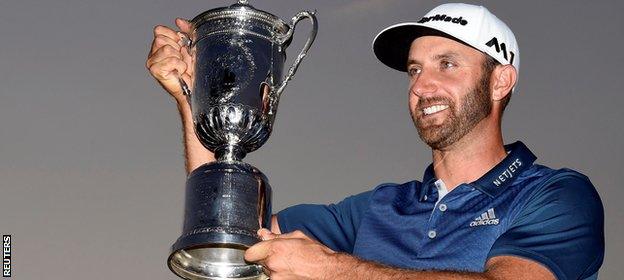
Johnson, US Open runner-up last year, celebrates his first major triumph
- Published20 June 2016
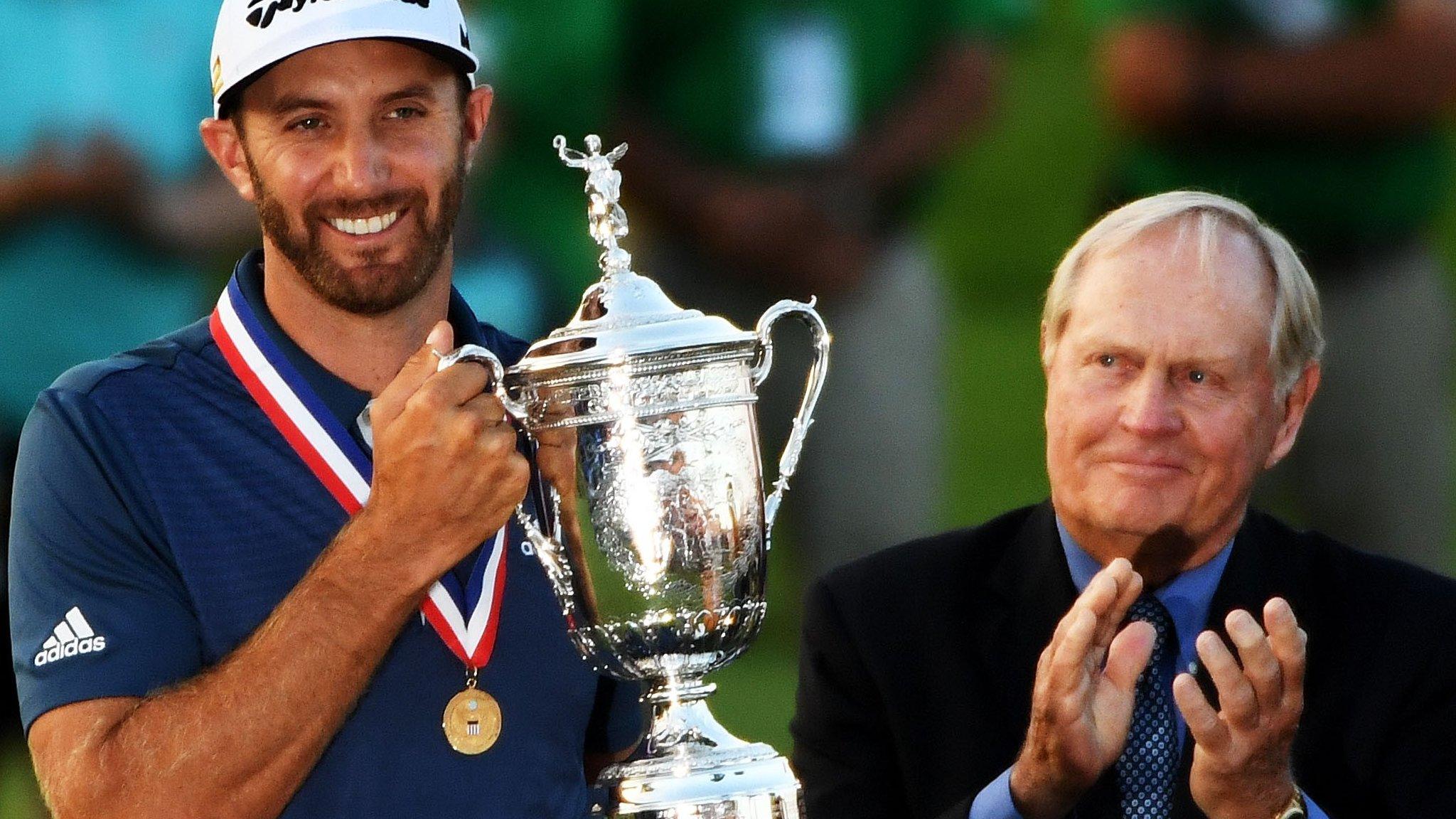
- Published20 June 2016

- Published19 June 2016
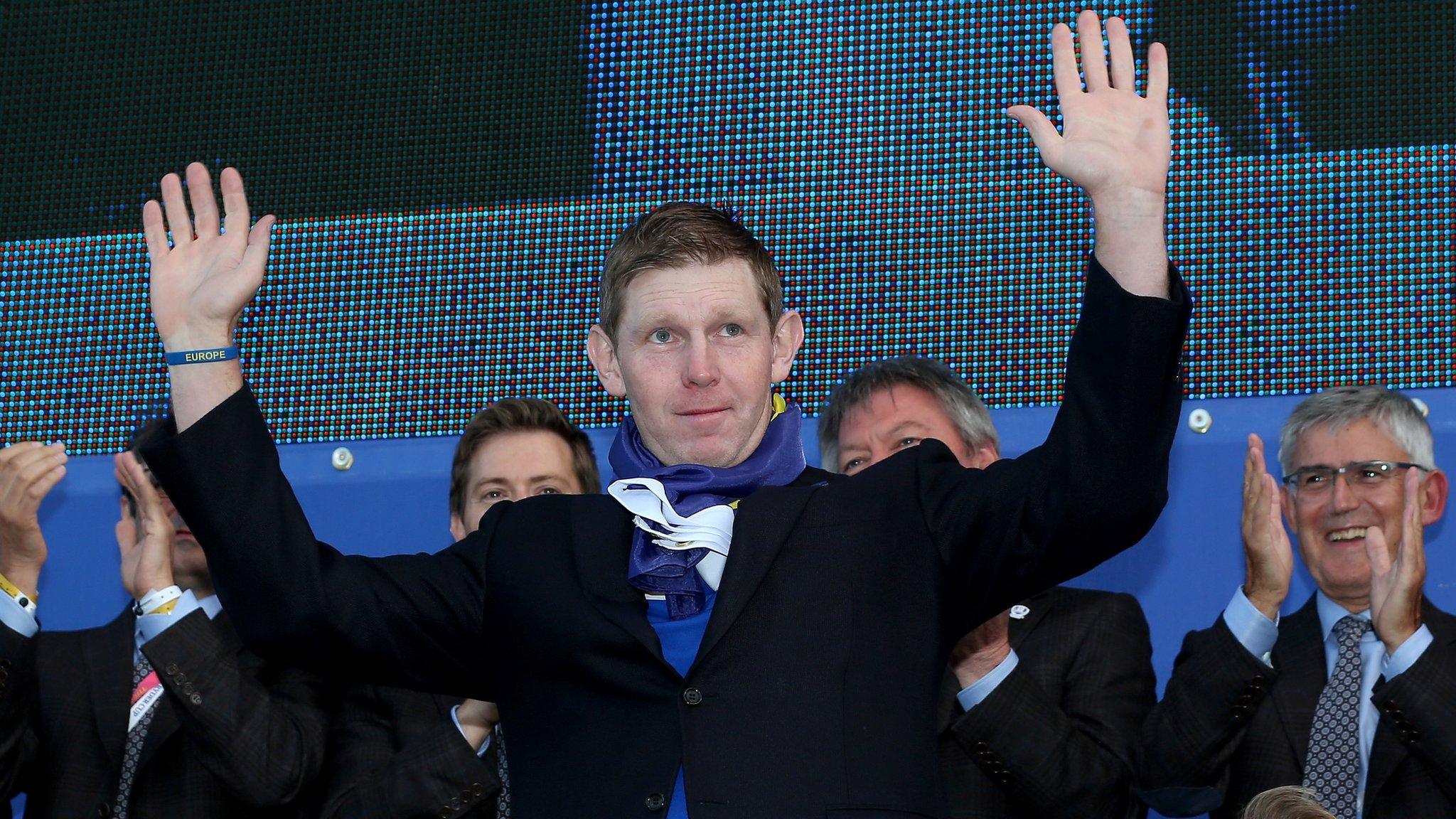
- Published28 September 2018
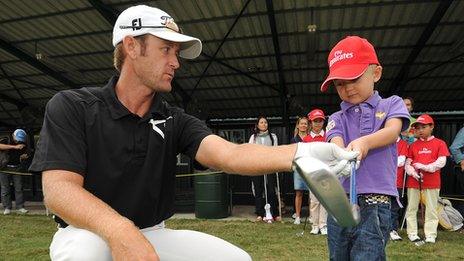
- Published13 May 2016

- Published19 July 2016
